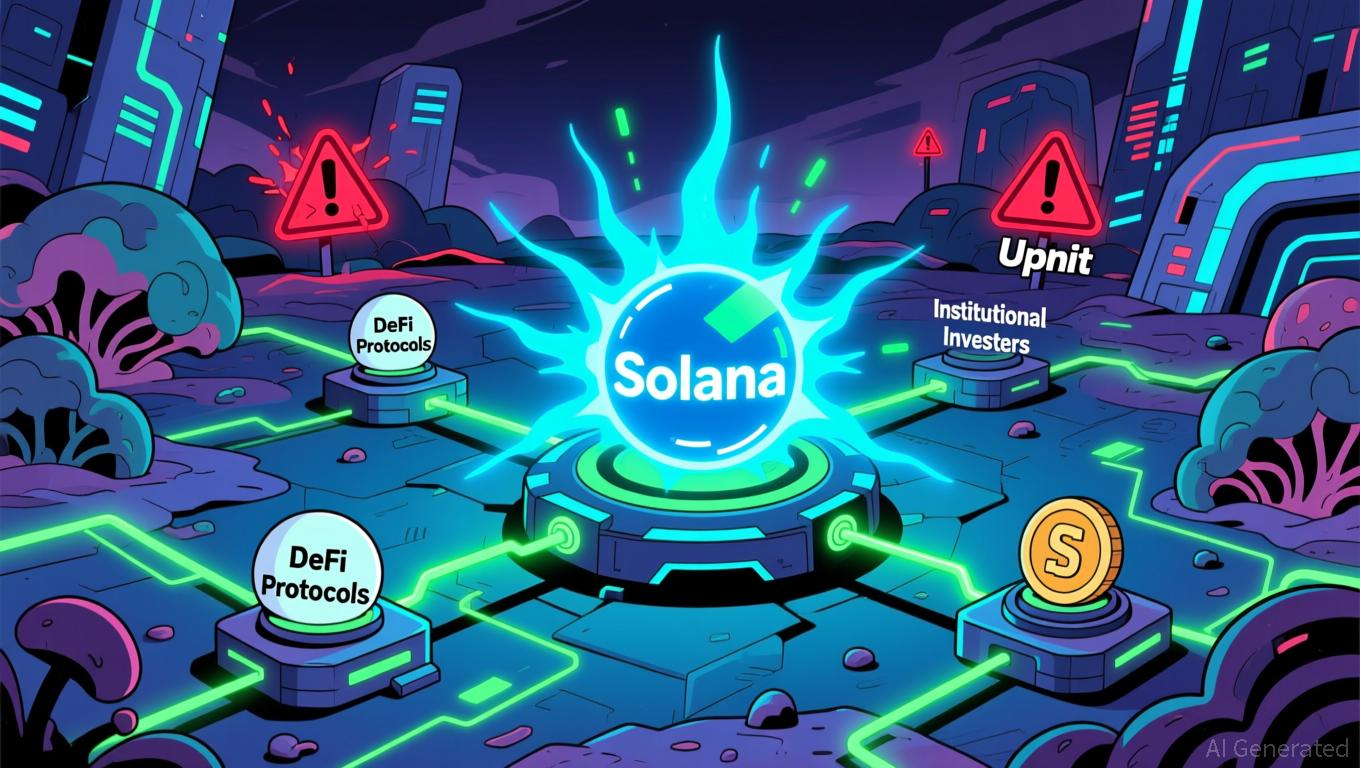dYdX’s performance-driven affiliate system establishes a new benchmark for DeFi rewards
- dYdX's v9.4 upgrade introduces a performance-based 50% commission tier, replacing static VIP tiers with dynamic affiliate fees tied to real-time trading volume. - The sliding fee model automatically adjusts commissions (30% base, 50% for top performers) to align affiliate rewards with platform liquidity and growth goals. - Competitors like Bitget and YWO also adopt performance-driven affiliate strategies, reflecting a broader DeFi trend toward merit-based incentives. - dYdX's protocol-level hard-coding o
dYdX has overhauled its affiliate program as part of the v9.4 software update, introducing a performance-driven commission structure that offers up to 50% rewards. This marks a notable change in how decentralized finance (DeFi) platforms incentivize participants. The update brings in a "Sliding Affiliate Fee Feature," replacing the previous fixed VIP tiers with a flexible system where affiliate commissions are directly linked to the actual trading volume they generate in real time. This adjustment
Under the revised system, all affiliates start with a 30% base commission—double the earlier 15%. Affiliates who refer over $10 million in trading volume within a 30-day window become eligible for a 50% commission rate for the following month. This variable structure ensures that higher contributions are rewarded proportionally, promoting a merit-based environment and aligning affiliate compensation with the platform’s liquidity and expansion objectives. The new approach also
This update demonstrates dYdX’s ongoing effort to enhance its tokenomics for greater effectiveness and competitiveness. By embedding performance criteria directly into the protocol, dYdX promotes economic fairness and minimizes operational hurdles, strengthening its position in the perpetuals sector. Experts highlight that such advancements are essential for maintaining liquidity in the increasingly competitive DeFi space, where strong incentive mechanisms are key to attracting and retaining users.
Other platforms are also advancing their affiliate initiatives. Bitget, for example, rolled out a Black Friday event featuring matched bonuses and a 50,000 USDT prize pool to boost spot-grid trading, while YWO launched a transparent introducing broker program with adaptable revenue sharing and rapid commission payouts. These developments reflect a broader industry shift toward performance-based models, as crypto companies aim to balance user acquisition with sustainable income
For
Disclaimer: The content of this article solely reflects the author's opinion and does not represent the platform in any capacity. This article is not intended to serve as a reference for making investment decisions.
You may also like
Privacy Altcoins Surge While Crypto Markets Decline
In Brief Cryptocurrency markets faced a major downturn in recent weeks. Privacy altcoins like Zcash rise amidst stricter regulation concerns. Upcoming regulations pose liquidity risks for privacy-focused cryptocurrencies.

Solana News Today: Institutions Remain Confident in Solana Amid Security Concerns and Volatile Prices
- Solana's on-chain trading volume now exceeds centralized exchanges, driven by $510M in ETF inflows and institutional adoption of DeFi protocols. - Price volatility and security breaches, including Upbit's $36.8M Solana-based theft, highlight risks despite $3B+ in corporate treasury holdings. - Institutional capital continues to flow into Solana's ecosystem, with DWF Labs committing $75M to scalable DeFi infrastructure amid TVL recovery to $120B. - Forward Industries reports $668M unrealized losses as Sol

XRP News Today: XRP ETFs See Rapid Growth, Price Remains Flat—Will Increased Inflows Overcome Technical Barriers?
- XRP ETFs saw $164M inflows on Nov. 24, 2025, with Grayscale and Franklin Templeton launching new products amid rising institutional interest. - Price rebounded to $2.20 but remains range-bound below key technical levels, forming descending patterns despite ETF-driven liquidity gains. - Ripple's RLUSD stablecoin surged 56% in 30-day volume to $3.5B, now third-largest GENIUS Act-compliant stablecoin after USDC and PYUSD. - Analysts predict $5.05 by 2025 and $26.50 by 2030, but XRP's 16.95% drop from 30-day

SEC Considers Blockchain Stock Advancements as Concerns Over Conventional Market Stability Persist
- SEC plans to discuss tokenized stock regulations with major firms like Coinbase and BlackRock , aiming to modernize securities rules for blockchain-based finance. - Proposed "innovation exemption" seeks to fast-track crypto products but risks destabilizing traditional markets by creating valuation gaps and eroding investor protections. - WFE warns tokenized shares could disrupt market structure, while Nasdaq proposes unified order books with shared CUSIP identifiers to align with existing systems. - Regu
